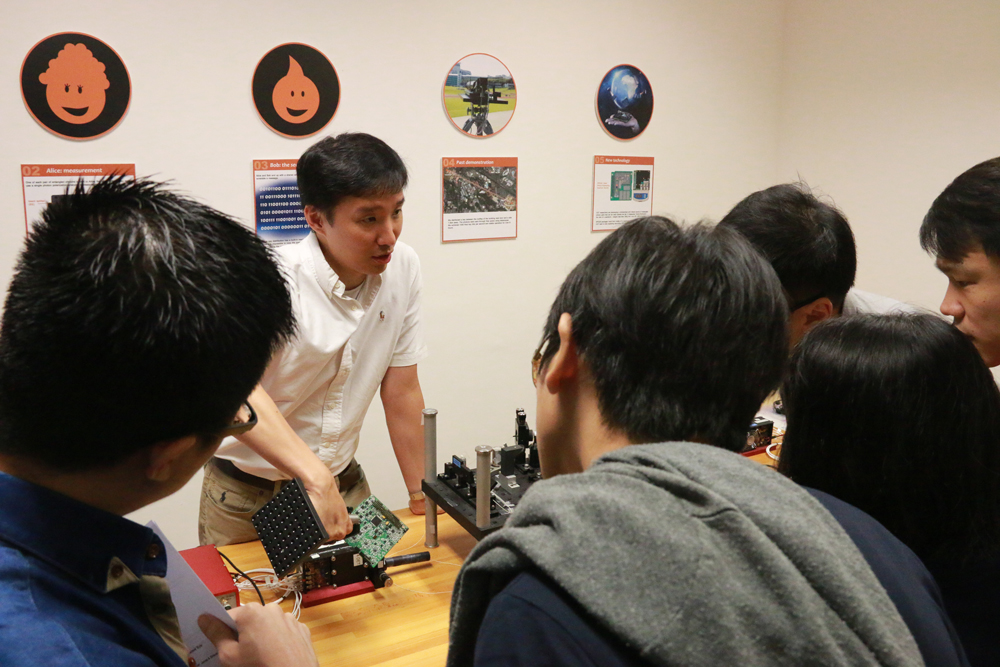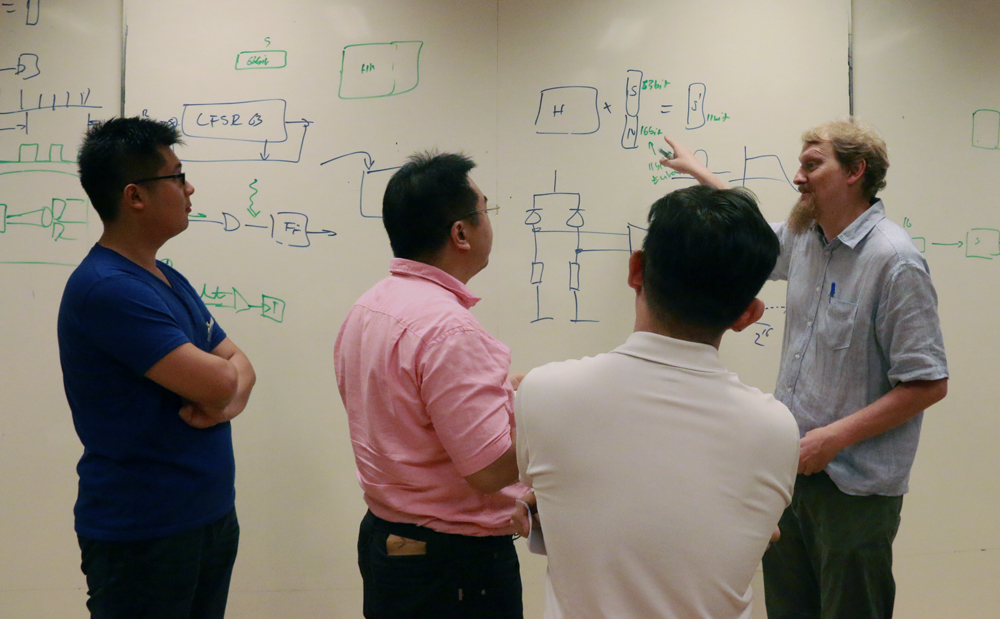Highlights
Practical quantum technologies: a workshop for industry


CQT researchers delivered a one-day workshop on practical quantum technologies to staff of ST Electronics (Info-Security) Pte Ltd on 11 March. The programme offered talks, hands-on demos and lab visits and open discussion.
ST Electronics (Info-Security) is a subsidiary of Singapore Technologies Electronics Limited (ST Electronics), a provider of information communication technologies founded in 1969 and having more than 5000 employees. It is ultimately part of ST Engineering, one of Asia's largest defence and engineering groups with about 23,000 employees around the world.
CQT Principal Investigators Alexander Ling and Christian Kurtsiefer led the organisation of the workshop for 21 registrants. The workshop was initiated following discussions with ST staff about possible joint projects.
"CQT has a valuable role to play in advising local industry on the impact of quantum technology on their operations and business process. We hope to continue to engage with more industry participants in the future," says Alex.
The talks introduced proposals for technologies in sensing, measurement, computing and communication. There was a particular focus on quantum key distribution as a 'future-proof' method for secure communication and on quantum random number generators (RNGs).
"It was refreshing to have an interaction at the very technical level with industry representatives – both sides probably learned about each others capabilities, laying the ground for a more close interaction in the future. We can perhaps find avenues to bring our technology into products, and inform local and overseas industries about the high level of technical formation we provide to students and junior members of CQT," says Christian.
Participants spent time with the Centre's postdocs and PhD students to see the technologies in close-up, with a demo, for example, of how detectors in the "Small Photon-Entangling Quantum System" developed in Alex's group is stabilised against temperature fluctuations.
Feedback from the participants was that, although they sometimes needed explanations better matched to their backgrounds, they found exposure to the labs and demos helpful and they enjoyed engaging with the presenters.







